Georgian PM: 'No revolution will occur in the country"
Canada to impose sanctions against those suppressing Georgia protests
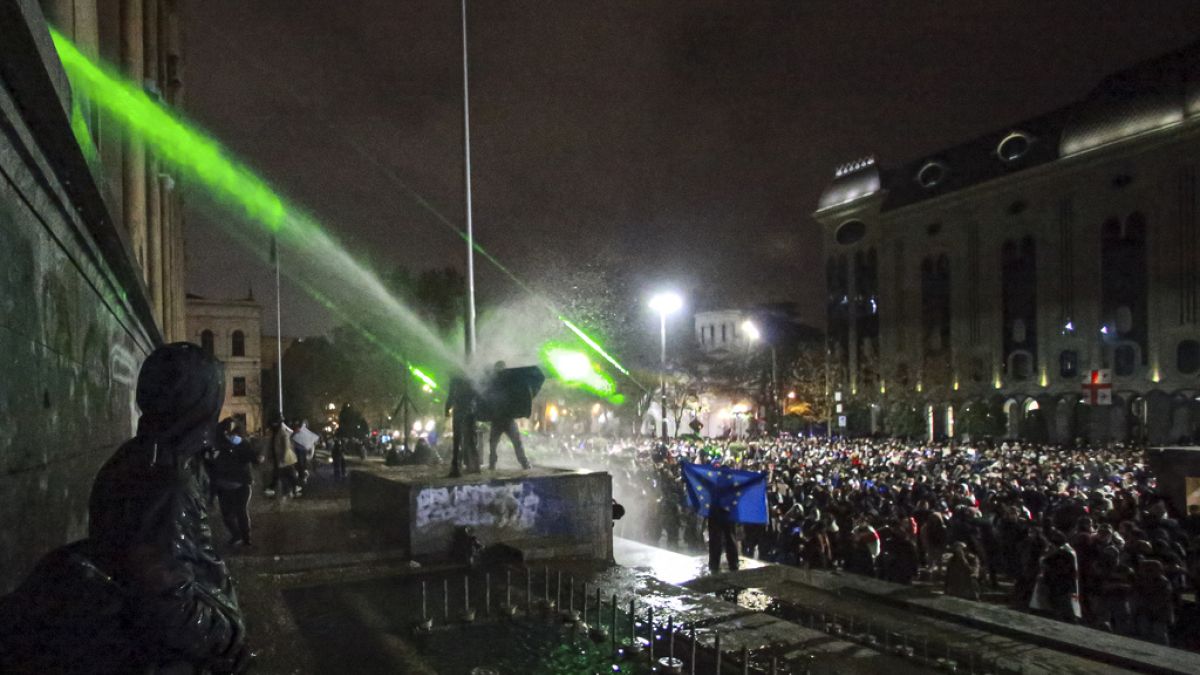
Copyright Zurab Tsertsvadze/Copyright 2024 The AP
03/12/2024 -
Georgia sees its fifth night of consecutive protests against the government's decision to suspend negotiations to join the European Union.
At a press conference with Lithuania, Latvia and Estonia, Canadian Foreign Minister Mélanie Jolie expressed Canada's solidarity with the Georgian people, and said they "are very concerned about what Russia is trying to do in Georgia."
On Sunday, the three Baltic states announced they would impose national sanctions against those "who participate in the suppression of legitimate protests in Georgia."
Jolie said Canada would follow suit and "will sanction key individuals and also businesses, entities that are involved in either human rights violations or corruption," based on their own sanctions regime.
It comes as protesters returned to the steps of Georgia's parliament in Tbilisi on Monday for a fifth night of demonstrations after the government, who were denounced by its critics for allegedly rigging its victory results, decided to halt progress towards European Union (EU) membership.
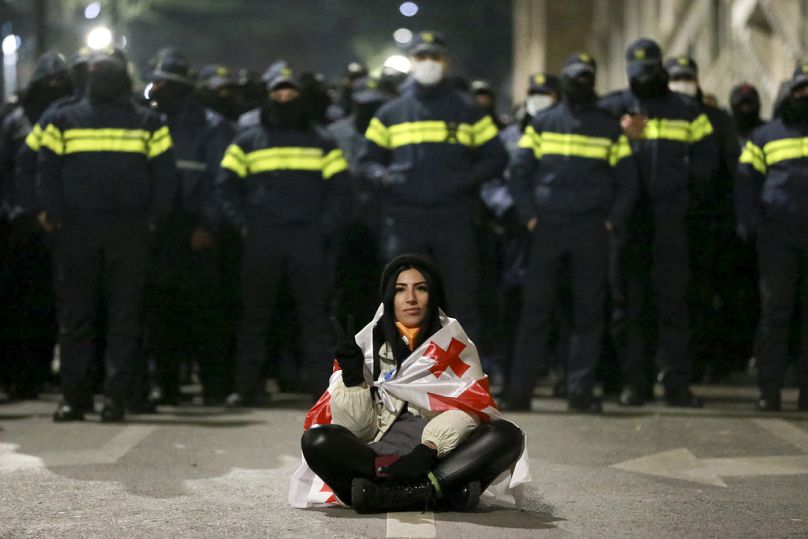
Protesters, who held posters denouncing Russia and carried EU and Georgian flags, threw rocks at the police, to which officers responded with water cannons.
On Monday, Georgia’s Interior Ministry said 224 protesters were detained on administrative charges and three arrested on criminal charges. 113 police officers needed medical treatment while three others were hospitalized after clashes with protesters, who hurled fireworks at police.
Georgia's President Salome Zourabichvili, who has been vocal about her support of the protests, said many of the arrested protesters had injuries to their heads and faces, including broken bones and eye sockets. She added that some people were subject to systematic beatings between arrest and transportation to detention facilities.
On social media platform X, the pro-EU head of state said "this is an attack on freedom of expression and the right to protest - basic rights violated, not to mention the way people are arrested and treated once detained."
The protests have gradually been spreading beyond the capital, with crowds taking to streets of regional towns and cities, such as Batumi, Kutaisi, and Rustavi. Schools and universities across the country also held strikes and walkouts.
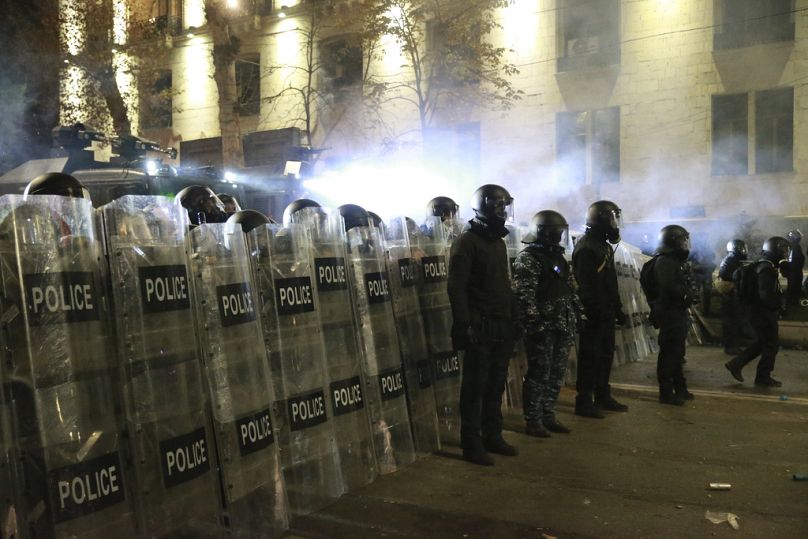
At a briefing at the Government House on Monday, Georgian Prime Minister Irakli Kobakhidze said that the European integration process has not been postponed, but instead "will continue with maximum intensity.”
The Prime Minister said diplomats received “clear instructions that Georgia’s European integration process must continue with maximum intensity,” during a meeting at the foreign ministry. "This is reality. Everything else is simply falsehood deliberately spread by the radical opposition and its associated media."
Kobakhidze added that the Head of the Organization for Security and Co-operation in Europe (OSCE), Pascal Alizard, wrote to Foreign Minister Maka Botchorishvili about future cooperation following the first session of the new parliament.
He said the letter also emphasized that the elections were held under competitive conditions as they "offered citizens a broad choice, were well-administered, and candidates had the freedom to conduct campaigns."
Baltic states slap sanctions on Georgian officials. Will the EU follow suit?
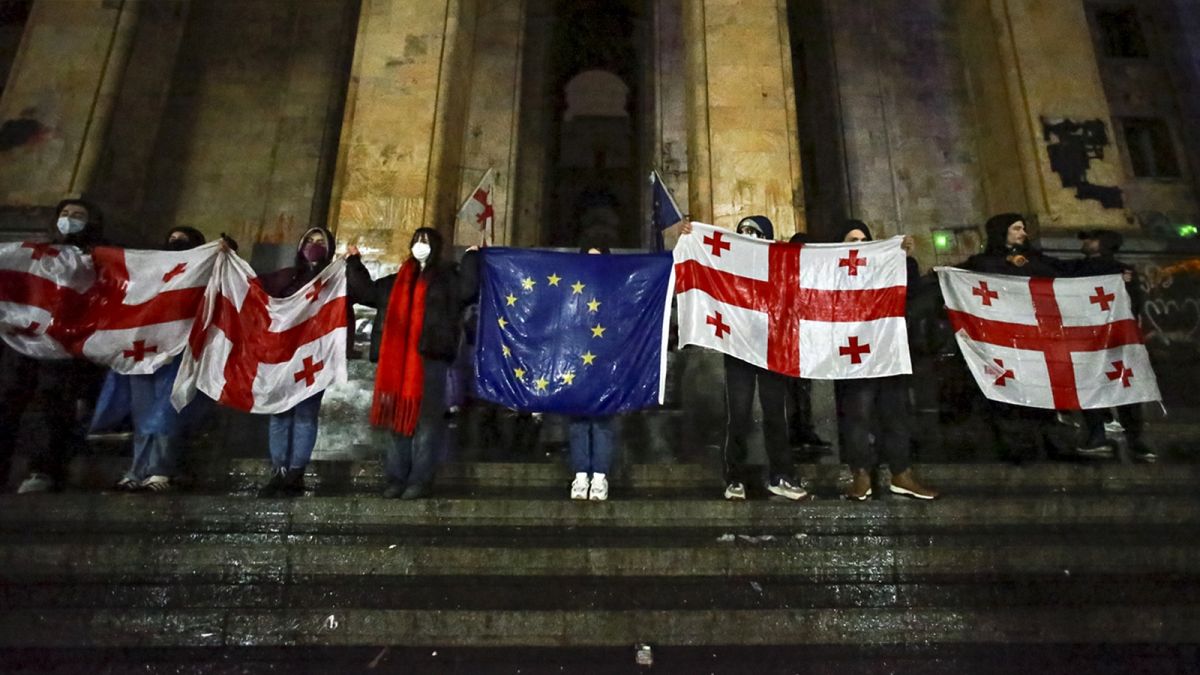
Georgia has been rocked by four consecutive nights of protests after the government decided to suspend EU accession talks until 2028.
The idea of imposing sanctions on Georgian officials is back on the table in Brussels after a crackdown on pro-EU protesters prompted a new wave of condemnation, with Estonia, Latvia and Lithuania announcing they would unilaterally introduce restrictions.
"The three Baltic States jointly agreed to impose national sanctions against those who suppressed legitimate protests in Georgia," the foreign affairs ministers of the countries said on Sunday. "Opponents of democracy and violators of human rights are not welcome in our countries."
The common blacklist, published on Monday, includes 11 Georgian figures, such as the minister for internal affairs and several of his deputies, who will be slapped with an entry ban. Bidzina Ivanishvili, the secretive oligarch who tightly controls the ruling Georgian Dream party and supports closer ties with Russia, is also blacklisted.
The Baltic move immediately increased pressure on the EU to follow suit and apply coordinated sanctions on sitting officials, something that Brussels has so far resisted.
Kaja Kallas, the newly-appointed High Representative for foreign affairs, said the repression of protests would "have direct consequences from (the) EU side", without providing further details.
A spokesperson from the European External Action Service (EEAS), the bloc's diplomatic arm, said "next steps" would be discussed when foreign affairs ministers gather on 16 December. A meeting of ambassadors on Thursday could provide further clues.
In reaction to the Baltic move, diplomats from other countries signalled their openness to replicate the move at the EU level but admitted their respective governments did not yet have a definitive position on the sensitive matter. Several diplomats who spoke with Euronews cautioned the situation was still "evolving" on the ground.
Even if Brussels were to propose sanctions, it is far from guaranteed the required unanimity would be achieved. Hungary, in particular, could prove a formidable roadblock.
Shortly after the contested elections of October, Prime Minister Viktor Orbán flew to Tbilisi and urged his counterpart, Irakli Kobakhidze, to brush off international criticism.
"I would like to congratulate you on the fact that, in the context of your desire for European integration, you did not allow your country to turn into a second Ukraine," Orbán told Kobakhidze.
A group of 13 EU countries, including Germany and France, later denounced Orbán's visit for being "premature" and lacking a mandate to speak on the bloc's behalf.
Fresh protests
Georgia has been rocked by four consecutive nights of protests, with thousands gathered in front of the Parliament in Tbilisi, waving Georgian and EU flags.
Police have responded with water cannons, tear gas and pepper spray to disperse the crowds, resulting in chaotic clashes and at least 44 people hospitalised.
According to the Ministry of Internal Affairs, 224 people have been arrested since the start of protests, which are set to continue on Monday night. "Any illegal action will be followed by appropriate legal response from the police," the ministry said.
Coalition for Change, a pro-EU political platform, said one of its leaders, Zurab Japaridze, had been detained in a "residential district" after taking part in the demonstrations.
The outcry began last week when Kobakhidze announced his government would suspend membership talks with Brussels until the end of 2028 and refuse any reception of EU funds.
"It is categorically unacceptable for us to consider integration into the European Union as a favour that the European Union should grant us," he said.
Kobakhidze's decision did not have an immediate impact because EU leaders had previously frozen the accession process over the passing of two controversial laws targeting NGOs and LGBTQ+ rights that raised comparisons with the Kremlin. The European Commission considers the laws incompatible with the bloc's values and has stopped providing funds directly to the authorities, only sending them to civil society.
However, many in Georgia saw the prime minister's words as an affront to the country's Constitution, which compels state bodies to "take all measures within the scope of their competences to ensure the full integration of Georgia into the European Union and the North Atlantic Treaty Organization."
President Salome Zourabichvili, a staunch pro-EU advocate whose term is about to end, slammed the government for "turning its back" on the EU and "its front towards Russia."
The suspension came the same day the European Parliament adopted a highly critical resolution that called for a re-run of October's general elections, which were marred by reports of intimidation, coercion and vote-buying. The poll saw Kobakhidze's party, Georgian Dream, secure a majority of seats with nearly 54% of all votes.
The European Parliament also demanded sanctions on officials and political leaders "responsible for the democratic backsliding, violations of electoral laws and standards, administrative abuses and misuse of state institutions."
The list proposed by MEPs features Kobakhidze himself, Tbilisi's mayor, the Parliament's speaker, Georgian Dream's chairman and Bidzina Ivanishvili.
Until now, Brussels has avoided going down the sanctions avenue, hoping the government would at one point reverse course and resume its engagement.
The possibility of suspending a visa liberalisation agreement between the EU and Georgia has also been floated but never moved forward because of its potential impact on the ordinary population, including those who support European integration.
The latest developments could make the bloc reconsider both options.
More than 200 people detained in Georgia
during protests over the suspension of EU
By Sophiko Megrelidze - Associated Press - Monday, December 2, 2024
TBILISI, Georgia — More than 200 people have been detained after four nights of protests in the Georgian capital following the government’s decision to suspend negotiations to join the European Union after the block lambasted the country’s parliamentary election.
The ruling Georgian Dream party’s disputed victory in the country’s Oct. 26 parliamentary election, widely seen as a referendum on Georgia’s aspirations to join the EU, has sparked mass demonstrations, with the opposition boycotting the parliament.
The opposition and the country’s pro-Western president also accused the vote of being rigged with Moscow’s help.
Tens of thousands of demonstrators gathered outside the parliament for the fourth night on Sunday. Some protesters threw fireworks at police who responded by deploying tear gas and water cannon.
Georgia’s Interior Ministry said Monday that 224 protesters were detained on administrative charges and three arrested on criminal charges. So far, 113 police officers needed medical treatment while three others were hospitalized.
Georgia’s President Salome Zourabichvili said that many of the arrested protesters had injuries to their heads and faces, including broken bones and eye sockets. Writing on X and citing lawyers who represent the detained, she said some people were subject to systematic beatings between arrest and transportation to detention facilities.
Zourabichvili holds a largely ceremonial role and is due to step down at the end of the year. She has indicated she will remain in her post until another president is chosen by a “legtimate” parliament.
Zourabichvili has accused the ruling party of using Russian methods to crack down on freedom of speech and to rig the election.
Russian President Vladimir Putin’s spokesman, Dmitry Peskov, said Monday that Russia views parallels between events in Georgia and those in 2013 and 2014 in Ukraine when a wave of protests was triggered by the then pro-Russian president’s decision not to sign an association agreement with the EU.
Peskov said Russia is not interfering in Georgia but suggested others were trying to “destabilize the situation.”
“All the signs are of an attempt to carry out an Orange Revolution,” he said, referring to protests following a disputed election in Ukraine over the winter of 2004-2005 which later saw a pro-Western leader come to power.
Ahead of Sunday’s protest, Prime Minister Irakli Kobakhidze of Georgian Dream warned that “any violation of the law will be met with the full rigor of the law.”
“Neither will those politicians who hide in their offices and sacrifice members of their violent groups to severe punishment escape responsibility,” he said at a briefing.
He insisted it wasn’t true that Georgia’s European integration had been halted. “The only thing we have rejected is the shameful and offensive blackmail, which was, in fact, a significant obstacle to our country’s European integration.”
The government’s announcement to suspend the EU membership process came hours after the European Parliament adopted a resolution criticizing October’s election in Georgia as neither free nor fair.
Kobakhidze also dismissed the U.S. State Department’s statement Saturday which announced the suspension of its strategic relationship with Georgia and condemned the decision to halt its efforts toward EU accession.
“You can see that the outgoing (U.S.) administration is trying to leave the new administration with as difficult a legacy as possible. They are doing this regarding Ukraine, and now also concerning Georgia,” Kobakhidze said. “This will not have any fundamental significance. We will wait for the new administration and discuss everything with them.”
Kobakhidze also confirmed that Georgia’s ambassador to the U.S., David Zalkaliani, had become the latest of a number of diplomats to stand down since the protests started.
The president of the European Council, Antonio Costa, and foreign policy chief Kaja Kallas spoke to President Zourabichvili Sunday to condemn the violence against protesters and to note that “the actions of the government run counter to the will of the people,” Costa wrote on X.
Also Sunday, Kallas and EU enlargement commissioner Marta Kos released a joint statement.
“We note that this announcement marks a shift from the policies of all previous Georgian governments and the European aspirations of the vast majority of the Georgian people, as enshrined in the Constitution of Georgia,” the statement said.
It reiterated the EU’s “serious concerns about the continuous democratic backsliding of the country” and urged Georgian authorities to “respect the right to freedom of assembly and freedom of expression, and refrain from using force against peaceful protesters, politicians and media representatives.”
The EU granted Georgia candidate status in December 2023 on condition that it meet the bloc’s recommendations but put its accession on hold and cut financial support earlier this year after the passage of a “foreign influence” law widely seen as a blow to democratic freedoms.
Georgian Dream has increasingly adopted repressive laws mirroring those in Russia which crack down on freedom of speech and curtail LGBTQ+ rights. A law banning same-sex marriages, adoptions by same-sex couples and public endorsement and depictions of LGBTQ+ relations and people in the media came into force Monday.
Speaking to The Associated Press on Saturday, Zourabichvili said that her country was becoming a “quasi-Russian” state and that Georgian Dream controlled the major institutions.
“We are not demanding a revolution. We are asking for new elections, but in conditions that will ensure that the will of the people will not be misrepresented or stolen again,” Zourabichvili said.
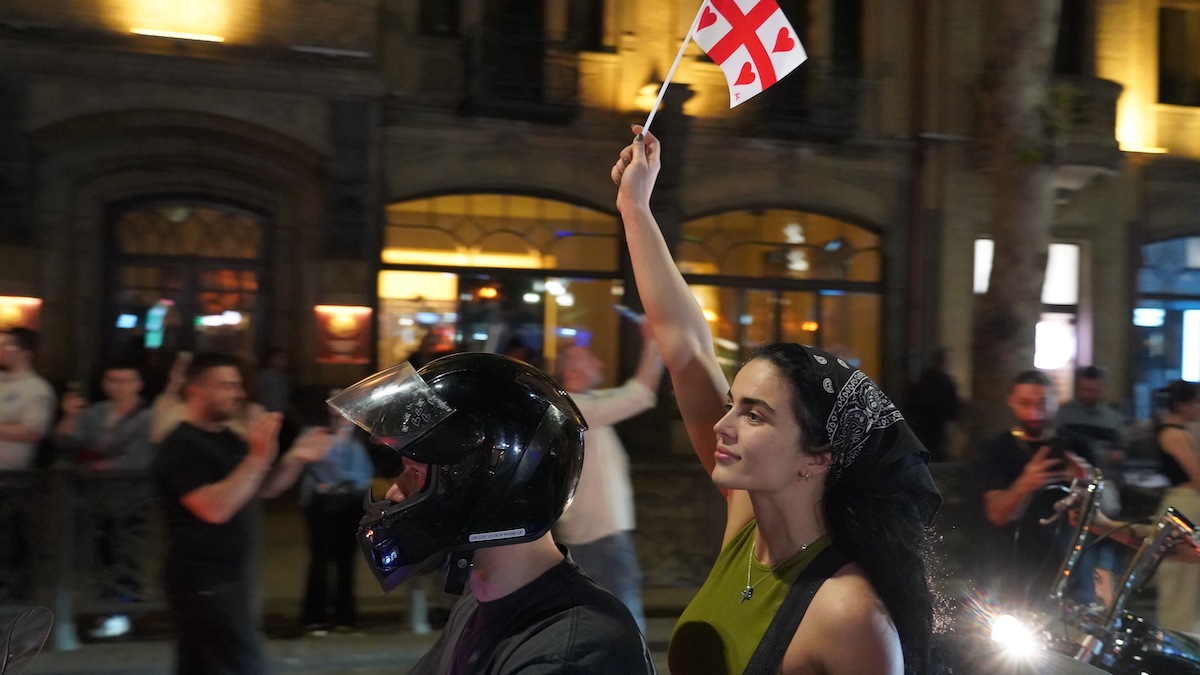
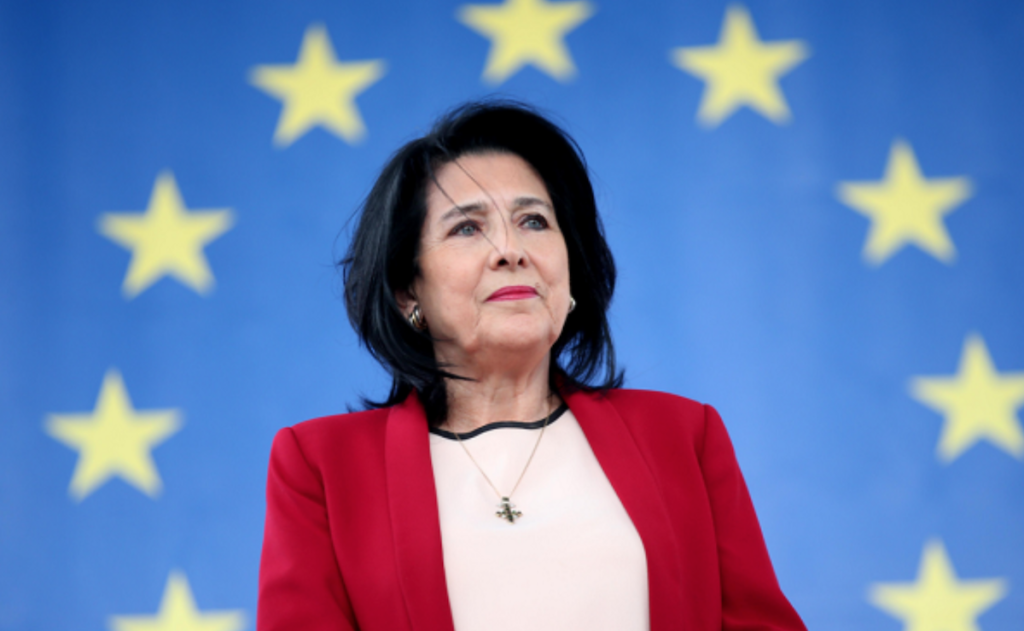
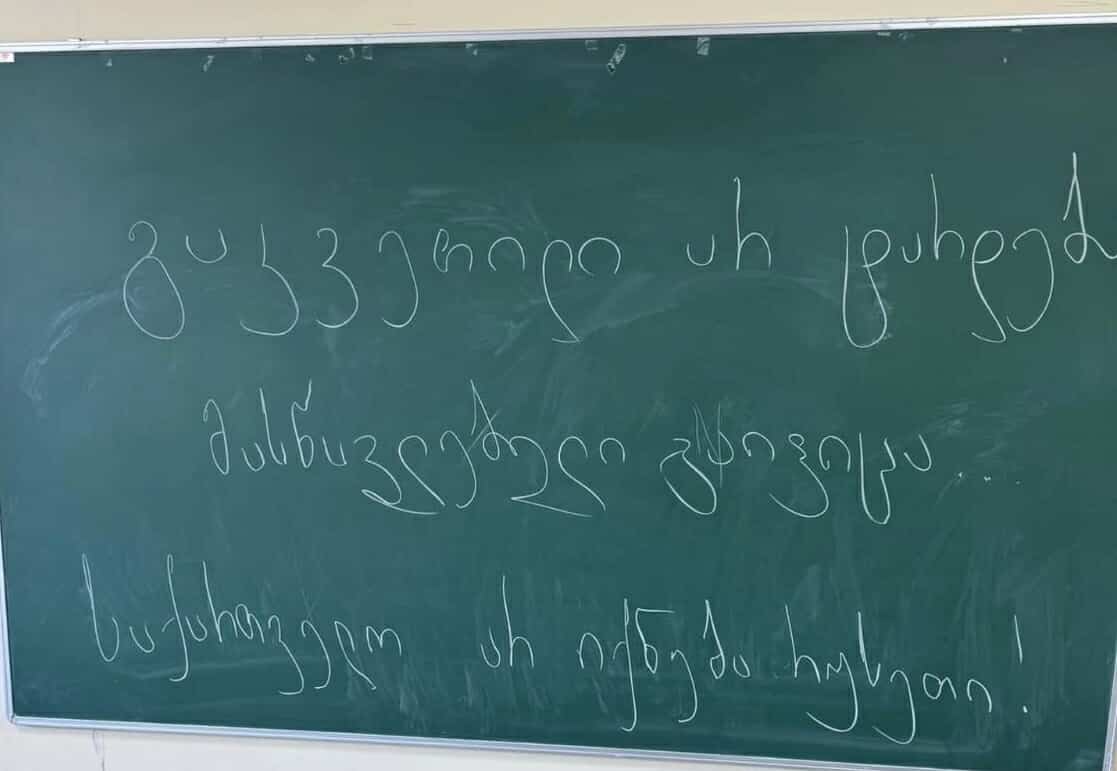
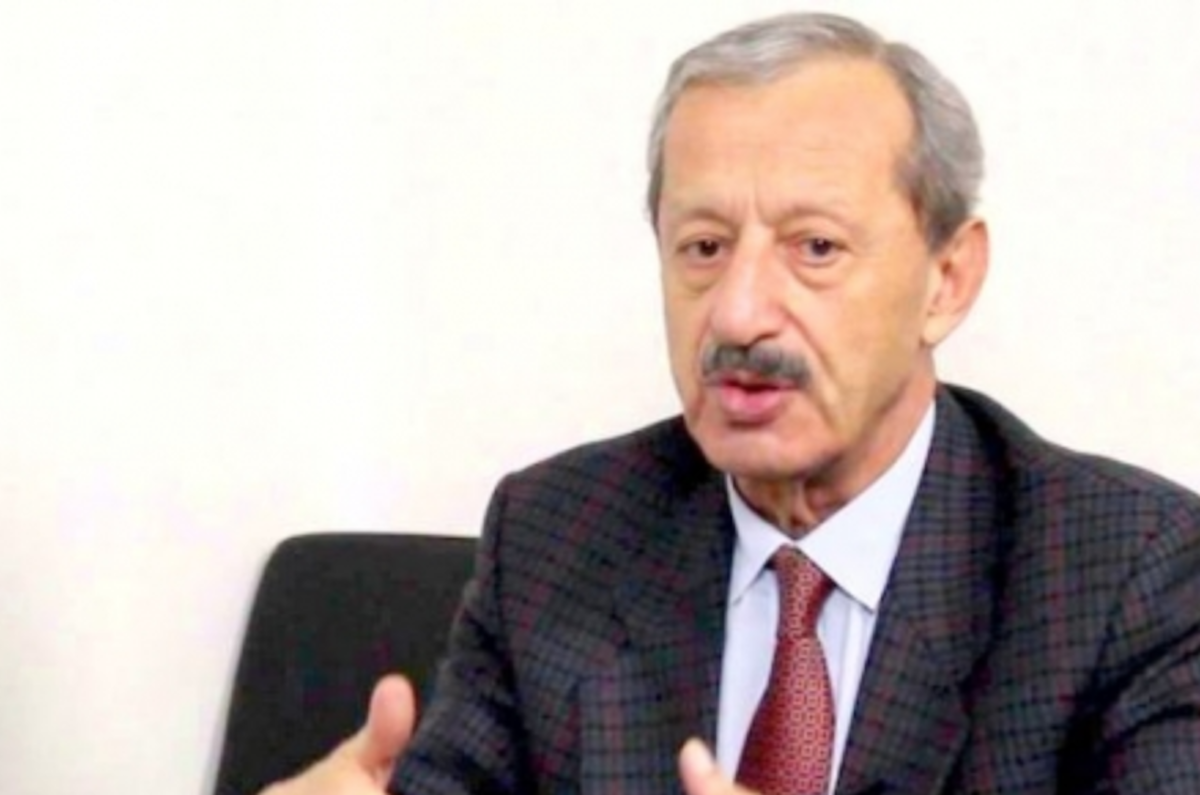

No comments:
Post a Comment